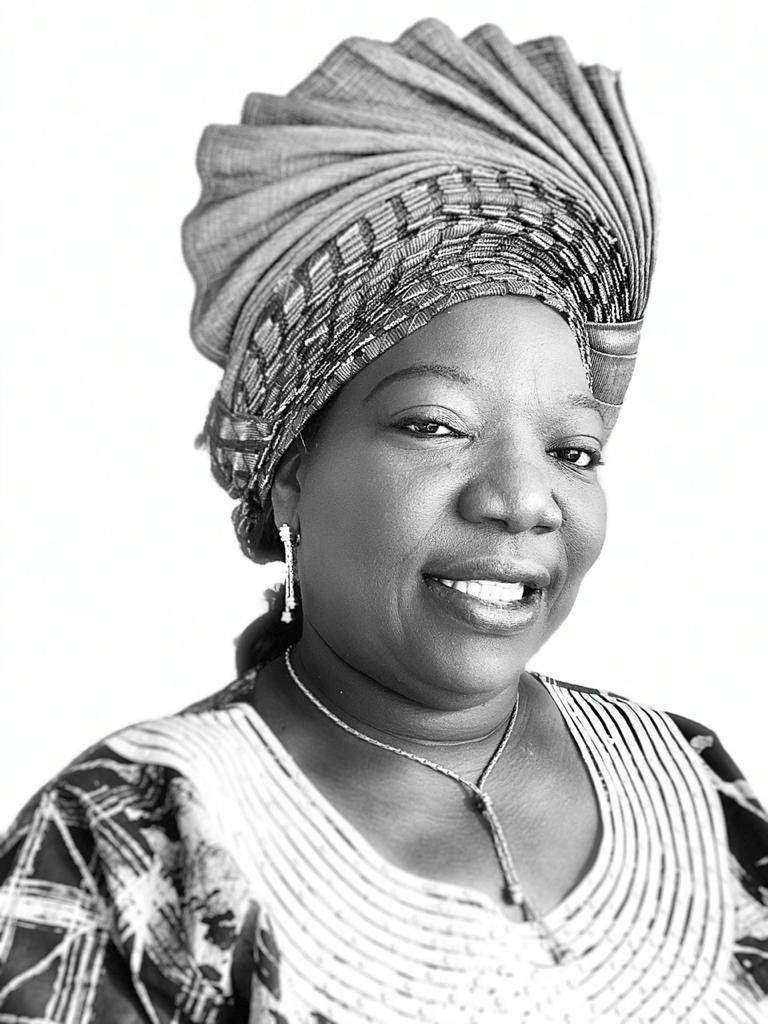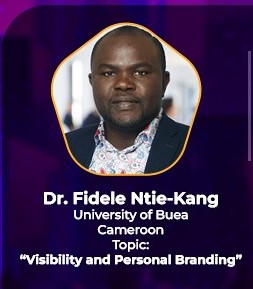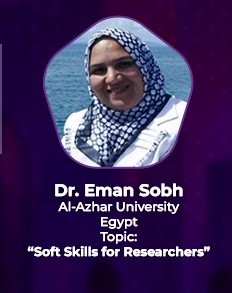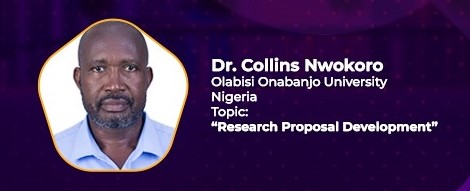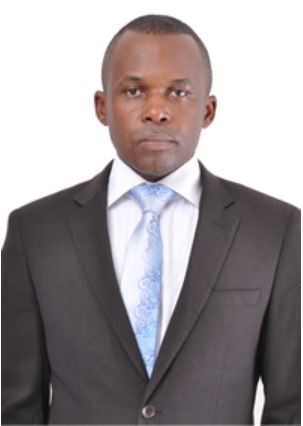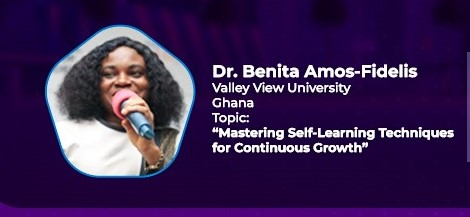ASFI 2023 Virtual Conference & Boot Camp
Was…
SPLENDID
IMPRESSIVE
BRILLIANT
SUPERB
MAGNIFICENT
The ASFI 2023 Virtual Conference & Boot Camp has now come and gone. But it is a story permanently written on the two tablets of hearts, never to be erased. This is because it ended on such a wonderful way, bringing together harmonious strings across the continent and far beyond.
In the end, none of us was ready to go. We all wanted to stay and continue. We are very proud of what we all accomplished together during the three days of the event. It shows a great hope for Africa. It shows there is no obstacle that we cannot together overcome.
It was Dr. Nwaru who set the stage on the first day of the event with the motivation: “it takes Africans to develop Africa.” Prof. Tomori emphasized this further in his keynote speech when he stated that “we have all it takes.”
And, yes, from the first day of the event to the last, we never looked back. Evidently, we saw that the only barrier to our progress is ourselves: once there is the will, there will be a way .
We would like to take this opportunity to thank you all – the participants, the keynote speakers, the panel discussants, the boot camp workshop facilitators, and in a special way the planning committee members who denied themselves many nights to get this event successful. We appreciate you all .
Below we give highlights of the key activities that took place during the event.
DAY 1
1st and 2nd Keynote Speeches:
Prof. Oyewale Tomori kick-started the first day with his profound speech “Importance of Multidisciplinary Research in Advancing Knowledge.” He minced no words by hitting the nail on the head: ”Africans have all it takes…” He emphasized the need for multidisciplinary research in finding lasting solutions to our many problems. Yes, we can. It is in our hands indeed.
View Prof. Tomori’s Keynote Speech Here: Play Here
Following Prof. Tomori’s charge, Prof. Olubukola Babalola presented the second keynote speech on “Addressing Climate Change on Food Security in Africa.” She took us to the basics: we need our environment and the environment needs us. We must be conscious with what we do to the environment if we must continue to benefit from it. Our foods are important and must be supplied safe and sound when we walk in wisdom with what we do to the environment. She emphasized a close synergy between indigenous farmers and those using modern tools. In this way we can better move in the right direction.
View Prof. Babalola’s Keynote Speech Here: Play Here
Boot Camp Activities:
On each of the event, the Boot Camp came always on the other side of the lunch break. On the first day, the Boot Camp workshops by Drs. Ntie-Kang and Sobh added so much spices to the morning sessions of the event
According to Dr. Ntie-Kang, as a researcher you have no choice between being visible and not bei ng visible – your impact depends on visibility and you must do it with intention. He took us through the landscape of visibility tools. The session was practical and useful. Dr. Sobh followed up with the presentation on the so-called ”soft skills”, skills you must be birthed with if you are to soar in your career as a researcher.
We were spoilt with very well undertaken and seamless parallel oral abstract presentation sessions. But the icing on the cake for Day 1 was the game we played in breakout sessions: ”Find A Collaborative Researcher”. Participants loved it.
DAY 2
Day 2 at the ASFI 2023 Virtual Conference & Boot Camp rose to a higher level from where we ended on Day 1.
Day 2 started with the much- anticipated “PANEL DISCUSSION” on “Gender Issues in Science and Development in Africa”, featuring 4 African women of timber and caliber.
Before the conference, the panel discussion promised to be exhilarating. Yet, it exceeded that promise: it ended on a much better note. It was indeed reflective and thought-provoking. We were charged.
Dr. Nwaru tried to pin the panelist down on several covert and overt issues on the topic of discourse, but they refused to be pinned down. They were firm in their voices, tone, and points made. Their arguments even swayed the men to their side too. We all agreed: the conditions of the African woman in science and public space is not optimal. We need to improve.
Whether it is caused by nature or nurture, we all have an opportunity to work together and fight for improvement. It is all to our benefit and we all agreed to be the agents of change. No matter the causes and the environment that surrounds the African woman, the panelists minced no word by emphasizing the need for resilience, networking, diligence and discipline on the part of the woman, if she is to meet her career aspirations.
What about the men? – well, the panel discussion was not about men. Maybe sometimes in the future we will have discussions about the men, but it was not at that panel discussion.
ASFI Women in Science was established:
The Panel Discussion ended on a great note, with Dr. Nwaru charging the ASFI General Assembly leadership to establish the “ASFI Women in Science” group. This is a project to be taken forward in 2024 to provide a place for young and thriving African women to express themselves and support each other.
Launch of the ASFIScholar platform:
The Panel Discussion was followed by the launch of the ASFIScholar platform, a brilliant initiative and platform developed by ASFI for African scholars to learn, mentor, collaborate, publish and be visible.
We were all excited by the platform. It tells the African story to the core, just as Dr. Nwaru emphasized on Day 1: “it takes Africans to develop Africa.” That is the story of ASFIScholar.
We invite you to Join #ASFIScholar https://asfischolar.org/ . Please don’t enjoy alone. Share with your colleagues and networks and social media handles. Make it a wildfire!
ASFIMeet:
Immediately after the launch of ASFIScholar, we went into the platform’s Poster Viewing Deck, which is embedded in the platform’s Video Conferencing facility – now named as “ASFIMeet”. ASFIMeet is beautiful and exciting. The system provides a video conferencing and electronic poster viewing facility in real time, with active interactions between viewers and poster presenters. It was fantastic and all credit to the hardworking team at ASFI. The Poster Viewing Deck is still live and available until end of 2023. To Poster Viewing Deck here: https://cutt.ly/9wYJUKia .
While ASFIScholar is freely accessible to all African scholars and professional across the world, ASFIMeet is exclusively free for only ASFI members.
Day 2 Boot Camp Workshop:
At the Boot Camp workshop, Dr. Collins Nwokoro took us through some rudiments of research proposal writing. It was an engaging session, which ended with participants being split into their various groups to produce a competitive project idea. On return each group presented their ideas. A committee was established that decided the best project.
View Dr. Nwokoro’s Workshop Here: Play Here
DAY 3
Launch of ASFI Research Journal (ASFIRJ)
On Day 3 of the event, we were spoilt again with such delicious menus of excellent activities. Dr. Nwaru kickstarted the day by the launch of the ASFI Research Journal (ASFIRJ). He gave a strong motivation for the establishment of ASFIRJ and highlighted the values the journal will bring to the publishing landscape in Africa, including excellence, quality, impact, timely reviews and editorial processes and publication, open access, transparency, and affordable.
ASFIRJ will be a multidisciplinary journal, which means it will publish papers from any field of enquiry. The first issue of the journal will be the abstracts from the just concluded conference. Get ready as more information is unleashed in the coming weeks.
3rd and 4th Keynote Speeches:
After the launch of ASFIRJ, we listened to the third keynote speech of the conference, which was excellently delivered by Prof. James Kewir in his traditional non-slide-based presentation. Prof. Kewir emphasized the need for cultural sensitivity in every piece of research we undertake. This must not be taken for granted and by so doing we will have the right outcomes from the research we set out to perform.
View Prof. Kewir’s Keynote Speech Here: Play Here
Then we listened to the last keynote speech by Prof. Alinah Segobye who provided a surgical analysis of the role of government in research in Africa, also in her traditional non-slide-based presentation. But “who is the government”, she asked. With this she gave a landscape analysis to establish the fact that the government here is not just an institution, rather, we are all in it, including NGOs like ASFI. We all must play our roles to make things work for us.
View Prof. Segobye’s Keynote Speech Here: Play Here
Oral Abstract Presentations
Before the lunch break, we had the second session of the oral abstract presentations, which occurred in parallel rooms.
Day 3 Boot Camp Workshops:
After the lunch break, we had the last Boot Camp Workshops, first with Dr. Benita Amos-Fidelis who provided strong theoretical underpinning on the importance of mastering self-learning techniques for continuous growth. This was followed by the presentation from Drs. Dumisani Hompashe and Abdul Hamidu Abdullahi on the important issue of communicating our research to non-scientific audiences. This is an important aspect of the research impact, they emphasized.
The Awards & Prizes:
Then came the presentation of awards and prizes, which were given in the following categories: first, second, and third best poster and oral abstracts, and best group research proposal. All award winners were given judicious prizes by the ASFI management. Congratulations once more to the winners.
Then the End Came:
The day then ended in a grand style, with Dr. Nwaru summarizing the key takeaways from the event in his farewell speech, including:
- HOPE: the successful organization of this virtual event and all the excellent activities that happened show that there is great hope for us as a people. We are marching on the right path. He aptly spiced this by quoting Christopher Reeves who said: “So many of our dreams at first seem impossible, then they seem improbable, and then, when we summon the will, they soon become inevitable.”
- CAPACITY: the success of this event shows that we have the wherewithal to deliver excellent events for our benefits.
View the Farewell Session Here: Play Here


